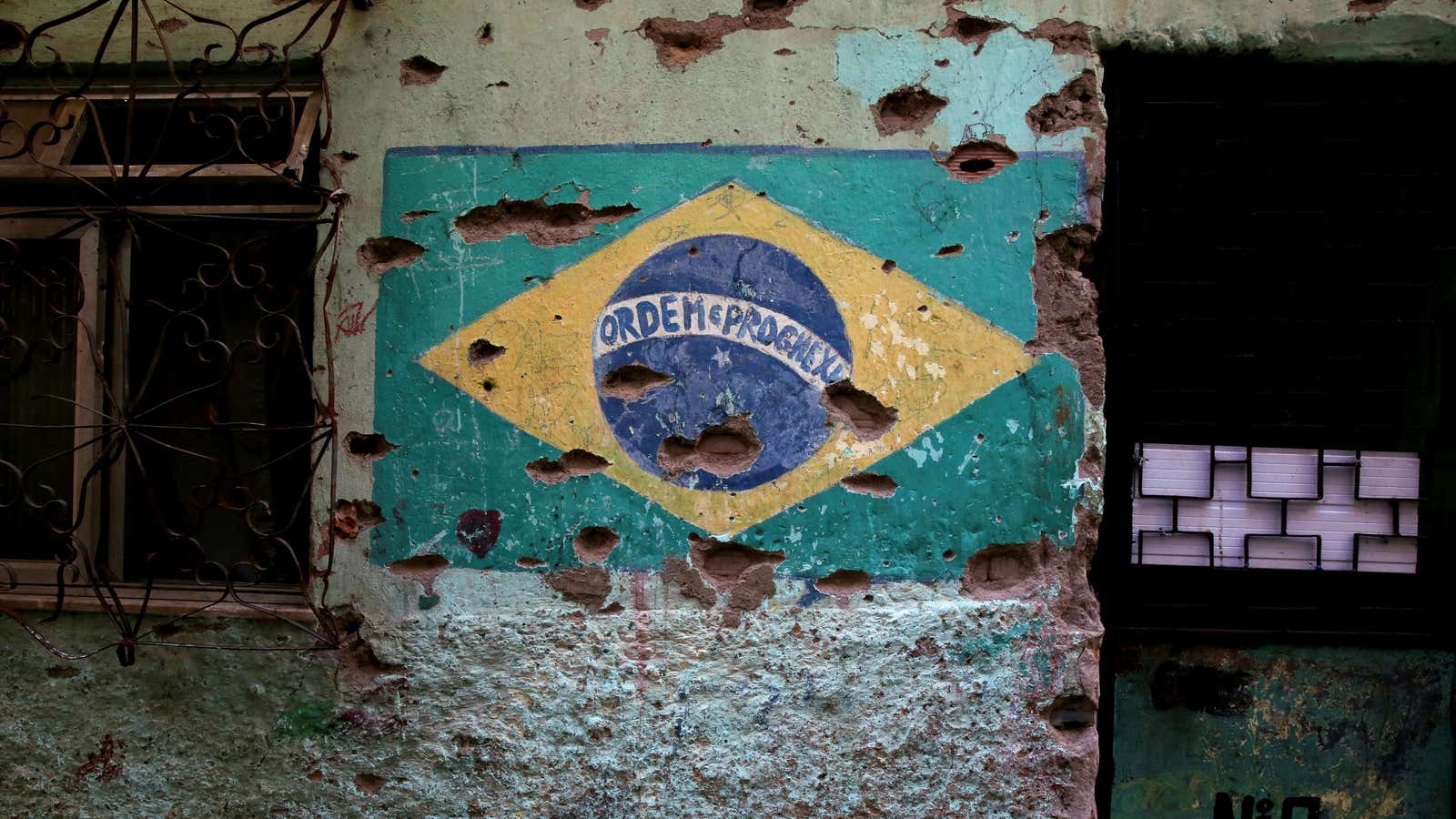As Brazilians prepare to choose their next president this Sunday (Oct. 7), new polls released this week suggest just how averse many voters are to another Workers’ Party presidency. The current frontrunner is a rightwing populist who has openly attacked Brazilian democracy, women, and minorities.
After growing for six weeks, the share of Brazilians planning to vote for Workers’ Party candidate Fernando Haddad dropped slightly from 22% to 21% between Sept. 28 and Oct. 2.
Haddad, who was the mayor of São Paulo, was tapped to run after former Brazilian president Lula, who is in prison on corruption charges, was blocked from seeking office. Haddad is less known than Lula, and as more people learn of him, and associate him with what some Brazilians perceive as the toxic baggage of Lula’s party, his rejection grows.
Haddad lags behind far-right contender Jair Bolsonaro, whose support grew four percentage points over the same period. Bolsonaro, from the right-wing Social Liberal Party (PSL), is now polling as the most popular candidate, with 32%.
The far-right Bolsonaro is known for sexist, homophobic, and racist remarks. In 2003, he told a female legislator she wasn’t beautiful enough to be raped. And in 2011, he said he’d rather have his son dead than gay. A former army captain, Bolsonaro has also praised Brazil’s bloody 20-year dictatorship. As recently as 2016, he said the regime’s biggest mistake was to have merely tortured critics instead of killing them.
The conservative candidate bears some resemblance to other outspoken populists around the world, like Donald Trump and Rodrigo Duterte. Bolsonaro presents himself as an outsider, although he has been a legislator for almost three decades, and his pitch matches Brazil’s strong anti-establishment sentiment.
But investors don’t seem worried, perhaps because Bolsonaro has chosen Paulo Guedes as his finance minister. An economist trained at the University of Chicago, Guedes has promised to put Brazil’s budget in order with fiscal austerity.
The Financial Times presented the radical candidate as the “market favorite” yesterday (Oct. 2), reporting that Brazil’s main stock market index and the Brazilian real rallied following news of his surge in the polls.
If none of the candidates receive more than 50% of the votes this Sunday, which is likely, there’ll be a runoff between the top two candidates on Oct. 28. That race, which is likely to pit Bolsonaro against Haddad, is still too close to call.
